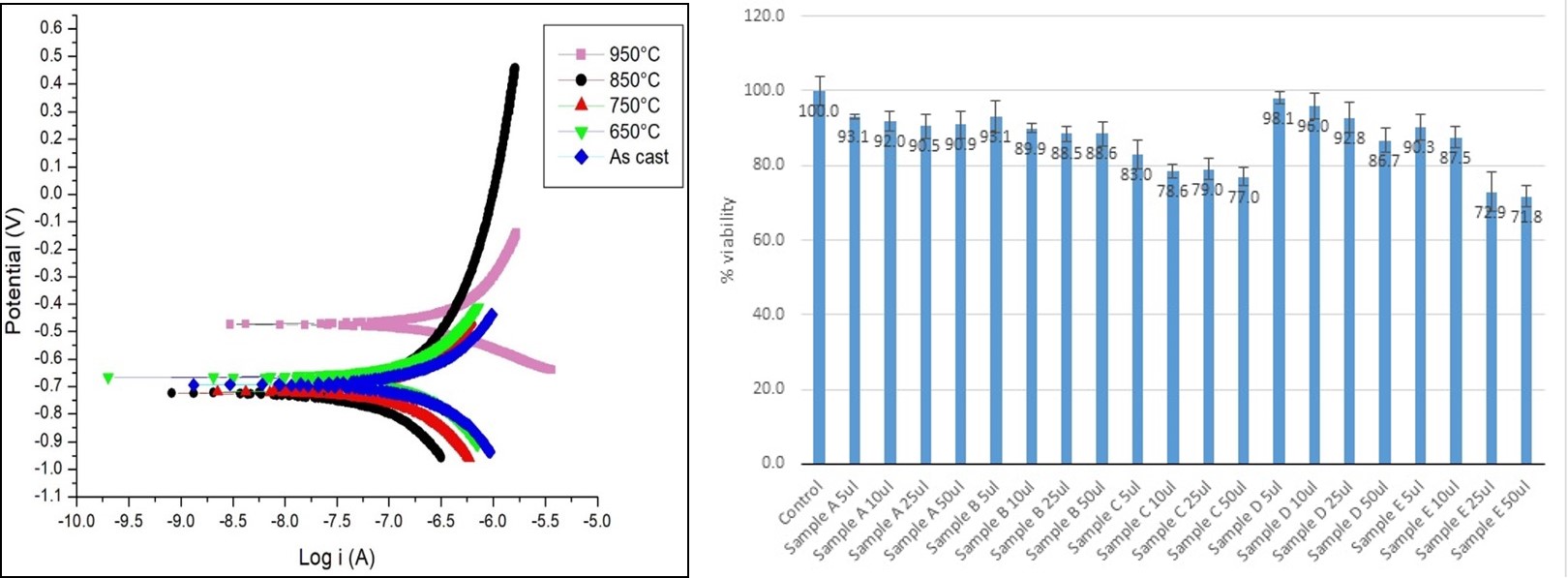Wed, Jan 22, 2025
[Archive]
Volume 16, Issue 4 (December 2019)
IJMSE 2019, 16(4): 36-42 |
Back to browse issues page
Download citation:
BibTeX | RIS | EndNote | Medlars | ProCite | Reference Manager | RefWorks
Send citation to:



BibTeX | RIS | EndNote | Medlars | ProCite | Reference Manager | RefWorks
Send citation to:
Dave V, Kotian R, Madhyastha P, Boaz K, Rao P, Charitha B. Simulated Porcelain Firing of CO-CR Alloy. IJMSE 2019; 16 (4) :36-42
URL: http://ijmse.iust.ac.ir/article-1-1275-en.html
URL: http://ijmse.iust.ac.ir/article-1-1275-en.html
Abstract: (16459 Views)
The aim of the present study is to assess the hardness, corrosion, and cytotoxicity of a commercially available cobalt-chromium (Co-Cr) alloy before and after simulated heat treatments at porcelain firing temperature. Five Co-Cr samples were fabricated using lost wax casting procedure. Heat treatments were carried out at 650°C, 750°C, 850°C, and 950°C. Vickers hardness was measured for as-cast and heat treated samples. The corrosion test was carried out separately in 0.1 N NaCl, 1% citric acid and artificial saliva at room temperature using potentiodynamic polarization technique. Gingival tissue biopsy of patients was taken and cultured to measure the cell viability by MTT colorimetric assay. Lowest hardness was observed at 650°C. 0.1 N NaCl and 1% citric acid corrosion medium showed a similar trend of corrosion rate. The least corrosion rate was found in artificial saliva. Firing temperature has an impact on the physical, chemical and biological properties of Co-Cr alloy in long-term clinical use.
Type of Study: Research Paper |
Subject:
Ceramics
Send email to the article author
| Rights and permissions | |
 |
This work is licensed under a Creative Commons Attribution-NonCommercial 4.0 International License. |







